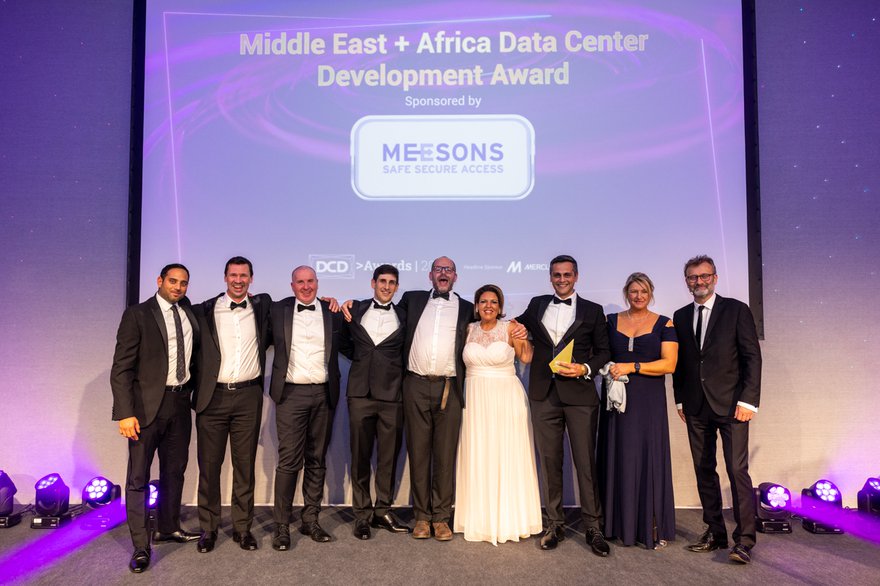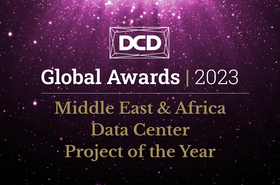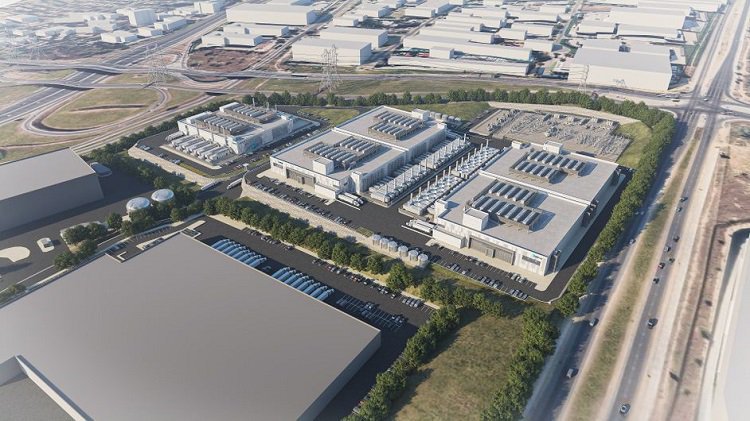While not traditionally a data center hub, digital infrastructure projects are blooming across Africa.
The deployment of new subsea cables, roll-out of 5G, and a global trend towards the cloud means the continent is seeing huge amounts of new data centers. And South Africa – always the biggest hub on the continent – continues to see a number of new projects being developed.
One of those projects was from DigitalBridge’s Vantage Data Centers, which launched a new facility in Johannesburg, South Africa, this year. The company won DCD’s Middle East & Africa Data Center Development Award for its efforts.
In March 2021, Vantage was contacted by one of its strategic customers who “urgently needed significant IT capacity in South Africa.” A few months later in October, after a site was located and secured alongside planning permission and power, Vantage commenced the build of a data center campus in Johannesburg, the company’s first in Africa.
Located in Waterfall City in the Midrand area of Johannesburg, the first data center (JNB11) was completed in July 2022; a two-story, 35,000 square feet, 16MW building. Delivery took place ahead of schedule in just 10 months using prefabricated electrical containers and equipment designed and pre-manufactured by the company’s suppliers, with zero lost-time incidents over 1.5 million working hours.
One challenge was the short delivery timescale required by the customer for the initial facility, exacerbated by the imminent rainy season (December to February).
Once fully developed the campus will consist of three facilities across 30 acres with 650,000 square feet (60,000 square meters) of data center space and 80MW of capacity. Vantage has said it was investing more than $1 billion into the site.
Powered by Eskom, the campus features a dedicated on-site, high-voltage substation. The buildings use a closed-loop chilled water system generated through air-cooled chillers alongside an integrated economizer which allows reduced compressor energy based on outside ambient temperature. The facility has an annual PUE of 1.25.
To mitigate power rationing or load shedding – common to the region – a 260,000-liter back-up fuel system was installed in the first phase, equal to 48 hours of fuel at full load to serve JNB11. This will be expanded to 1.6 million liters once the campus is fully built-out.
Vantage has also signed a 20-year 87MWp power purchase agreement (PPA) with SolarAfrica to power the facility with renewable energy from a solar farm. Vantage has pledged to reach net zero by 2030.
“The project was a smooth process having thoroughly researched the right location to ascertain available land, power and ease of planning – greatly assisted by the partnership forged with Attacq, a leading Real Estate Investment Trust (REIT) in the region, and the good relationship maintained with Eskom,” the company said.
“We are thrilled to announce that we've won the DCD Middle East & Africa Data Center Development Award in recognition of our Johannesburg campus,” Vantage said after winning the award, sponsored by Meesons. “This award recognizes the hard work and the expertise of our teams who worked diligently to complete our first African data center (JNB11).”
At the event, Abed Jishi, VP of design engineering EMEA, told DCD: “It’s awesome [to win] after all the hard work that we’ve done for the past couple of years to develop that campus.”
“It’s one of the most resilient data centers in the region. One of the biggest achievements for Vantage is to make sure that, building such a big campus in such a developed country, we’re still tapping onto renewable energy sources.”
“One of the big hurdles was the expertise, trying to find the right expertise for the different engineering discipline we go through. I can’t say it was an easy task, but South Africa being so connected to the world, it gave us the leverage to bring expertise to the country in conjunction with local expertise.”



